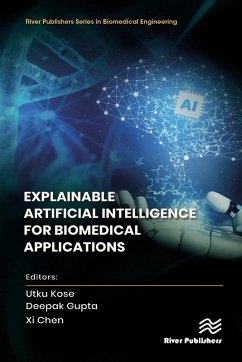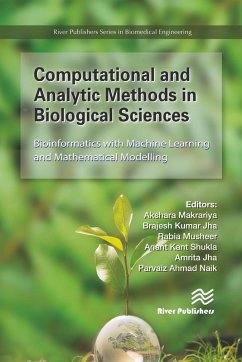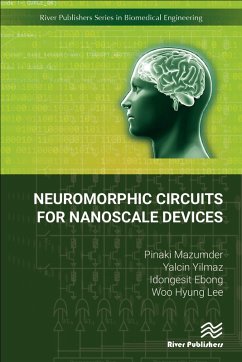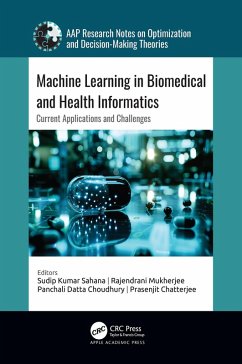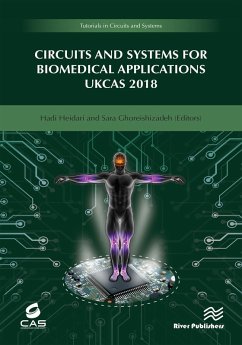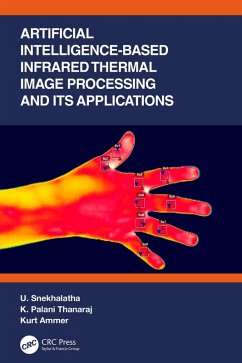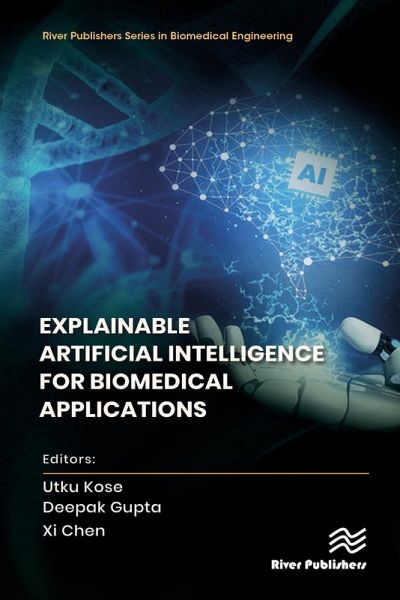
Explainable Artificial Intelligence for Biomedical Applications (eBook, PDF)
Versandkostenfrei!
Sofort per Download lieferbar
114,95 €
inkl. MwSt.
Weitere Ausgaben:

PAYBACK Punkte
57 °P sammeln!
Since its first appearance, artificial intelligence has been ensuring revolutionary outcomes in the context of real-world problems. At this point, it has strong relations with biomedical and today's intelligent systems compete with human capabilities in medical tasks. However, advanced use of artificial intelligence causes intelligent systems to be black-box. That situation is not good for building trustworthy intelligent systems in medical applications. For a remarkable amount of time, researchers have tried to solve the black-box issue by using modular additions, which have led to the rise o...
Since its first appearance, artificial intelligence has been ensuring revolutionary outcomes in the context of real-world problems. At this point, it has strong relations with biomedical and today's intelligent systems compete with human capabilities in medical tasks. However, advanced use of artificial intelligence causes intelligent systems to be black-box. That situation is not good for building trustworthy intelligent systems in medical applications. For a remarkable amount of time, researchers have tried to solve the black-box issue by using modular additions, which have led to the rise of the term: interpretable artificial intelligence. As the literature matured (as a result of, in particular, deep learning), that term transformed into explainable artificial intelligence (XAI).
This book provides an essential edited work regarding the latest advancements in explainable artificial intelligence (XAI) for biomedical applications. It includes not only introductive perspectives but also applied touches and discussions regarding critical problems as well as future insights.
Topics discussed in the book include:
Explainable Artificial Intelligence for Biomedical Applications is ideal for academicians, researchers, students, engineers, and experts from the fields of computer science, biomedical, medical, and health sciences. It also welcomes all readers of different fields to be informed about use cases of XAI in black-box artificial intelligence. In this sense, the book can be used for both teaching and reference source purposes.
This book provides an essential edited work regarding the latest advancements in explainable artificial intelligence (XAI) for biomedical applications. It includes not only introductive perspectives but also applied touches and discussions regarding critical problems as well as future insights.
Topics discussed in the book include:
- XAI for the applications with medical images
- XAI use cases for alternative medical data/task
- Different XAI methods for biomedical applications
- Reviews for the XAI research for critical biomedical problems.
Explainable Artificial Intelligence for Biomedical Applications is ideal for academicians, researchers, students, engineers, and experts from the fields of computer science, biomedical, medical, and health sciences. It also welcomes all readers of different fields to be informed about use cases of XAI in black-box artificial intelligence. In this sense, the book can be used for both teaching and reference source purposes.
Dieser Download kann aus rechtlichen Gründen nur mit Rechnungsadresse in A, B, BG, CY, CZ, D, DK, EW, E, FIN, F, GR, HR, H, IRL, I, LT, L, LR, M, NL, PL, P, R, S, SLO, SK ausgeliefert werden.




